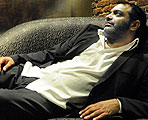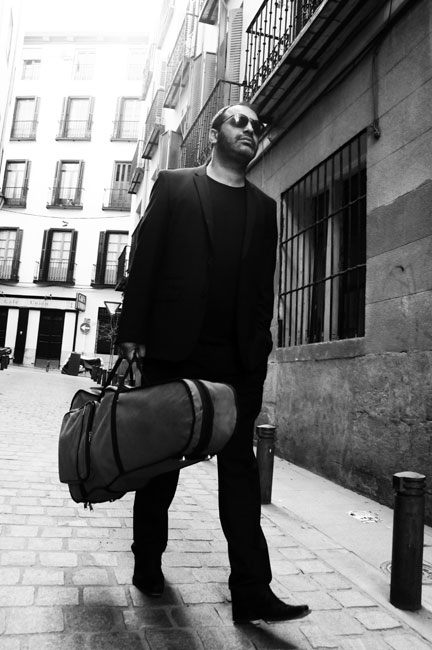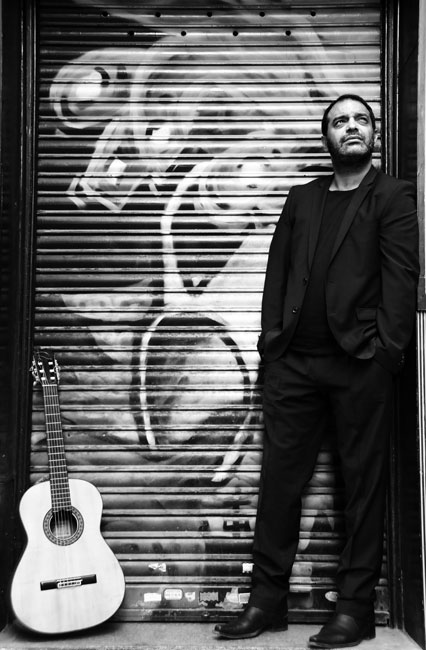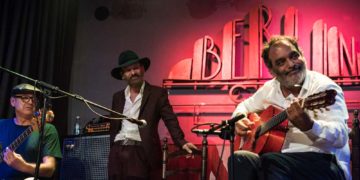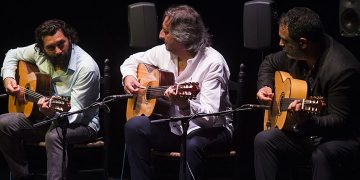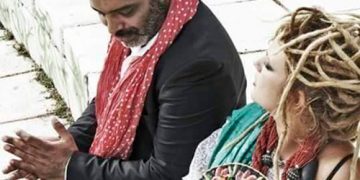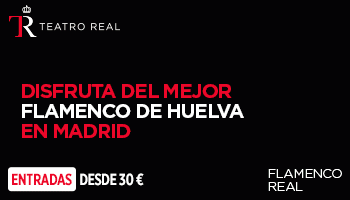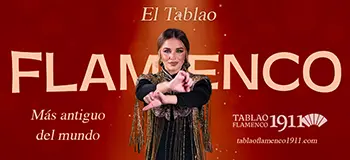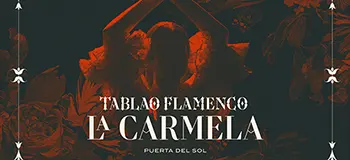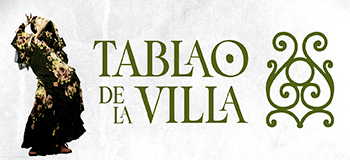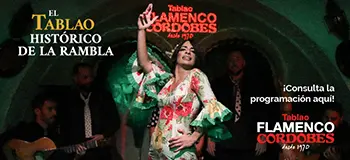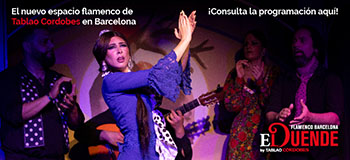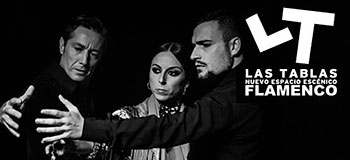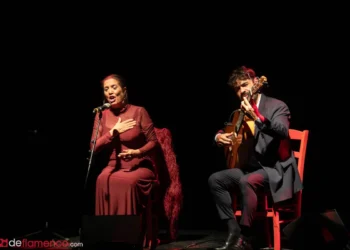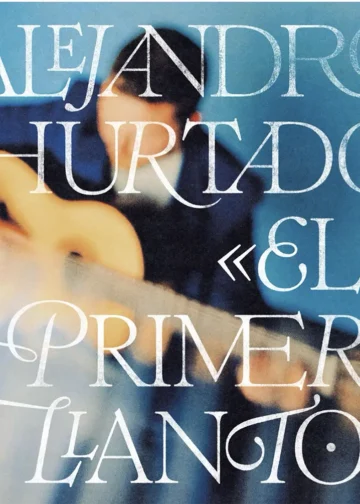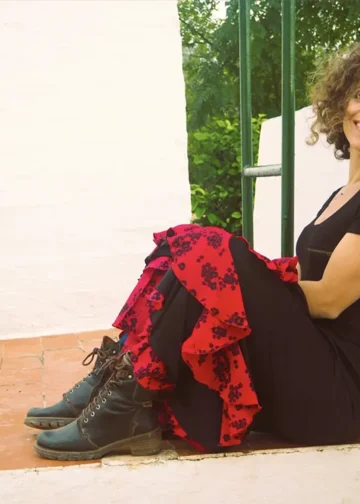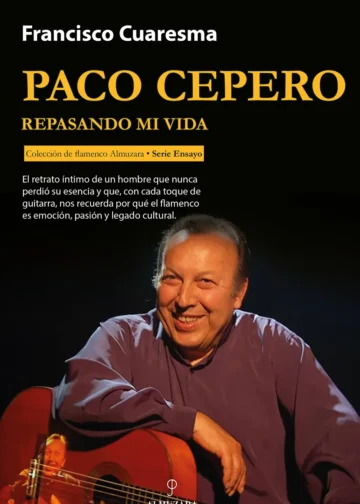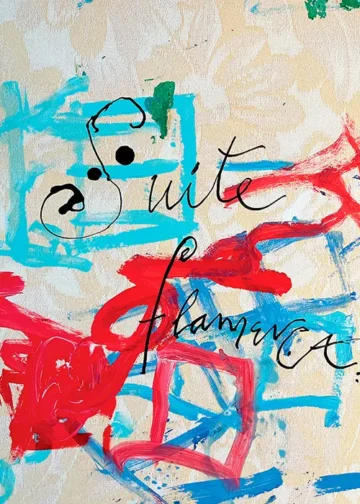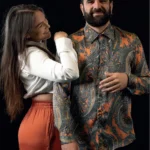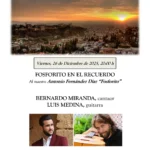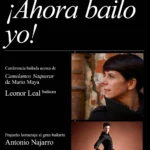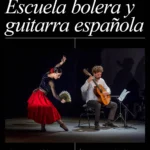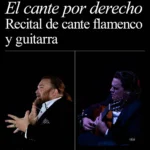Interview: Pablo San Nicasio Ramos
Photos: Anya Bartels-Suermondt – Universal
«Sometimes you become flamenco just by having the intent»
The guitar-playing facet of Juan José Suárez Salazar “Paquete”, wouldn’t have been evident had it not been for this “Mr. Pakett”. Of course we had his work in “La Barbería del Sur” and the seven resulting recordings. We also knew of his accompanying adventures with a diversity of artists, in particular Enrique Morente. But he needed to take one step forward and come out alone on stage, or at least be the center of attention. Paquete has now come out as a soloist. He has his reasons, and here he talks about them.
After seven recordings with “La Barbería”, and your behind-the-scenes flamenco work….finally…
And eight-hundred million collaborations and productions…yes, I think if you put together every musical phrase of mine that’s out there on record, you put it all together and another record of mine could have come out long ago…oh well… It’s a responsibility this thing of being a flamenco guitarist, you can’t take it lightly. I’ve waited, and now I’m satisfied with the results, but I’m not obsessing about it, just in case.
Is it difficult to get into the role of soloist? I mean, you must always be thinking of Paco de Lucía, Vicente, Tomatito…they set the standard, no?
I’ve always been a flamenco guitarist. The thing is I’ve also been very open-minded, but really and truly. Because that’s what feels right to me, not because of any commercial concerns. And that made me seek out other musicians with other aesthetics…the names you mentioned are the reference, they’re brilliant, and I identify with their playing, but at the same time I try to do something that makes them see themselves reflected in what I do.
On the recording there’s a lot of cante, and you use Juan Antonio Salazar, a volatile genius.
He’s an individual who has great wisdom to offer today’s flamenco artists. He’s a relative, and he comes to my place to see me. In my opinion, he is unique composing and doing unusual things. He’s flamenco through and through. Flamenco is a kind of music that sometimes it’s good enough to simply have the intent. And sometimes Juan Antonio is just on the verge of doing something and you have to let out an “olé!”. He used to come around here and I’d ask him for verses and stuff. He would sing to give me an idea for some other voice, but it turned out there was no one better than him, Guadiana.
Always surrounded by your people.
Yes, because we got together a lot in Casa Patas, and since I live right in front I’d call them and bring them in. Plenty of people I just yanked them in from the bar at Casa Patas when they least expected it. And here, in the basement and with equipment, I’ve been working little by little with Montse, Kiki…
Who is Dominguito?
A guy from Extremadura, a relative of mine, with an impressive voice. I also placed my bets on young people, they have the right to carve out a place for themselves.
But you also rely on big names…like Enrique Morente for example.
He didn’t need to be defended, but I played for him off and on for many years, from the time I was 16, and now I’m 46. He’d always tell me to relax, “day after tomorrow I’ll pass by and we’ll record”. I took this malagueña that’s on “Pablo de Málaga” with two guitars, and I do my own version with just one.
You included Turkish music, and quite successfully at that.
There’s a story behind that. I came upon Erkan Ogur through Tomatito who’d heard a record of his at a bar in Holland and went so far as to ask for the record to see who it was. He went crazy with this guy. You know how much Tomatito likes Turkish music, now he’s about to do some concerts with Omar Faruk. He told me about that music and the fact is, I also went crazy with it. I liked it so much, I took some samples of his to include in my own pieces. I didn’t know how to get in touch with him, there was no way. And it was thanks to playing things of his that we finally met via correspondence, but not personally, and he gave me his permission. I have to send him a guitar, he asked me for one. I hope to see him shortly. He’s on the record quite a bit, and it could have been more, but I didn’t want to take advantage.
You also version Pat Metheny.
Yes, I wanted to use the original title, but his record company wouldn’t let me. He asked me to put a different title, I don’t understand why.
“Musicians are almost like poets, we do our work, we end up with a bunch of finished compositions and we’re alone…with problems for finding an outlet. But Cervantes probably had to wait a long time to get published. And Mozart”.
What is it about Pat Metheny and flamenco? I can’t think of any musician who has been the object of such devotion for so many years without being flamenco.
His playing is very pretty. We flamencos like sensitivity and technique. He’s got everything, harmony, speed, lyrical sensitivity…I think he’s flamenco without even realizing it. It’s music we can do a lot with, it always hits the mark, covering so many different aesthetics, it seems like he makes a record every week. And we’re always looking for good stuff.
There are also stories behind the titles of the pieces.
Number 28 is a composition in seven quarter time, that’s how we got the name. It’s the most original piece of the whole record. You hear it by a percussionist or some other musician, and it’s quite normal, but on guitar it’s very strange. And I don’t feel like a pioneer either. It’s an idea I took from Sting. He’s a hell of a musician, plays in sevens, nines…I listened to things of his and I couldn’t get the gist. I was obsessed with them, and after a lot of work I managed to adapt to those time signatures.
The soleá is the central theme, the piece that guitarists will be most interested in.
That’s obvious. Nevertheless it’s not a recording with any lightning-fast scales. In the soleá, as in the rest of the album, I’m trying to say interesting flamenco things without being pretentious.
Your father is a solid-gold Portuguese.
I took him from Patas and brought him along. I asked him to sing some old things in Portuguese. He did it without guitar, just with a rhythmic base, and look at it.
“Caramelocura”
In that one I’m thinking of Caramelo, a Cuban pianist who lives and works here in Madrid, and as far as I’m concerned, is the best in the world. The level of Gonzalo Rubalcaba and company. He’s someone who inspires us flamencos a lot.
How are you going to deal with live performances, for example, that night in Casa Patas?
One thing is the record, and another, the performances. Generally speaking, the idea is to expand on the record. I’ll take Sabú, Yelsi and Rafita from Madrid, a singer in the new wave. We have to do more time than on the record, which comes and goes in the blink of an eye. Live performance must always be a musician’s highest moment.
And how is it you never went into singing?
I’m no frustrated singer like so many guitarists say. And if I didn’t play this, I’d be a percussionist, like my brothers. It was Juan Antonio Salazar who encouraged me to play.
To play what?
Niño Miguel’s falsetas, which I grabbed by ear. People liked that and so I set my mind to it.
”The best thing for making a record is to want to make a record. That’s all it takes. And instead of buying a new car, you buy good equipment. Some good mikes and good ideas, get on the stick and help yourself. And it takes work and patience”.
I’d say the best thing about you are your harmonic concepts.
But it’s a resource I don’t seek as an end in itself. It’s a good thing because it’s useful to know eight chords instead of just one. It’s not a question of keeping things simple out of laziness. If someone has a simple approach, it’s because they’ve gone over things again and again, and what comes out is simplified, it’s not taking things easy.
What do you remember of the Paquete from Barbería?
Innocence…that was sort of me in those days. Now I’m more skeptical. When you’re young you’re braver. Now I have more self-doubt, it’s touch and go…which is good, because it forces you to choose more carefully, but other times it paralyzes you.
You’ve advised and encouraged a lot of people. What do you tell them?
That the best thing for making a record is to want to make a record. That’s all it takes. And instead of buying a new car, you buy good equipment. Some good mikes and good ideas, get on the stick and help yourself. And it takes work and patience. Musicians are almost like poets, we do our work, we end up with a bunch of finished compositions and we’re alone…with problems for finding an outlet. But Cervantes probably had to wait a long time to get published. And Mozart. They didn’t have the means we have today to become known, so…maybe the way things are now is making us go back to that, at least as far as musicians are concerned.
Tell us about your guitar shop.
I don’t know how to make guitars, but I have so many things, I need room. So I went and rented this place from Casa Patas. I sell second-hand guitars, good makes…and, well, a little like a crocodile, I sell one every five months or so, that’s how often they eat…
Descubre más desde Revista DeFlamenco.com
Suscríbete y recibe las últimas entradas en tu correo electrónico.


